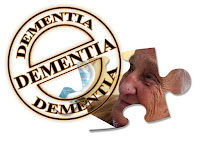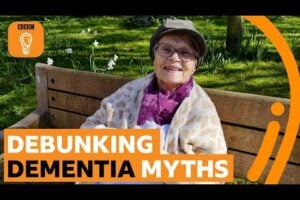DEMENTIA WITH LEWY BODIES and other dementias are caused by proteins called Lewy bodies. How long can one live with them? Mayo Clinic researchers help answer that question for various conditions, including Parkinson’s, MSA with parkinsonism and Parkinson’s dementia.
An important Mayo Clinic study in JAMA Neurology has some answers for patients with Parkinson’s disease, Lewy body dementia, multiple system atrophy with parkinsonism and Parkinson’s disease dementia.
The population-based study found that patients with these diseases died about two years earlier than the general population.
Long Term
“As doctors, we want to be able to counsel our patients appropriately when they ask, ‘What will happen to me?’” says Rodolfo Savica, M.D., Ph.D., lead author and a neurologist at Mayo Clinic. “Understanding long-term outcomes can help clinicians better inform patients and their caregivers about what to expect.”
The risk of death was seen among patients as follows:
- Multiple system atrophy with parkinsonism – six years earlier.
- Lewy body dementia – four years earlier.
- Parkinson disease dementia – 3½ years earlier.
- Parkinson disease – one year earlier.
Study Basis
The study used data from the Rochester Epidemiology Project, a collaboration of medical facilities in Minnesota and Wisconsin involving community members who have agreed to share their medical records for research. The researchers reviewed data from 1991 through 2010. They compared 461 patients with these diseases to 452 patients in the general population ─ all in Olmsted County, Minnesota. Sixty percent of each group was men.
Alpha-synuclein
Lewy bodies are clumps of alpha-synuclein proteins. Named after the doctor who first discovered them, they can accumulate in the brain and cause various diseases. When this happens, it is called a synucleinopathy.
In this study, Patients who had synucleinopathies included:
- 309 with Parkinson’s disease,
- 81 with Lewy body dementia,
- 55 with Parkinson’s disease dementia,
- 16 with multiple system atrophy with parkinsonism.
Parkinsonism was defined as having at least two of four signs: resting tremor, slowed movement, rigidity, and impaired reflexes to maintain posture and balance.
Of the 461 patients with synucleinopathies, 316 or 68.6 percent died during follow-up. Of the 452 general population participants, 220 or 48.7 percent died during follow-up.
Cause of death also was compared. Among patients with synucleinopathies, neurodegenerative disease was the most frequent cause of death at 31.5 percent. Cardiovascular disease was the second most common cause of death at 15.7 percent. For the general population, cardiovascular disease was the most common cause of death at 25.5 percent.
Understanding Dementia
“This helps understanding on how these diseases work,” Dr. Savica says, noting that the paper is among the first comprehensive studies of the survival and cause of death of people with synucleinopathies, compared with the general population.
-
Study co-authors are Brandon Grossardt, M.S.; James Bower, M.D.; Eric Ahlskog, M.D., Ph.D.; Bradley Boeve, M.D.; Jonathan Graff-Radford, M.D., Walter Rocca, M.D.; and Michelle Mielke, Ph.D., all of Mayo Clinic.
SUPPORT:
- The study was supported by an award from the National Institute on Aging of the National Institutes of Health (grant AG 034676) and the Mayo Foundation for Medical Education and Research.
SOURCE:
-
Mayo Clinic
Mayo Clinic is a nonprofit organization committed to clinical practice, education and research, providing expert, whole-person care to everyone who needs healing. For more information, visit mayoclinic.org/about-mayo-clinic or newsnetwork.mayoclinic.org/.












This comment has been removed by the author.
This song was written by a singer/songwriter for his mom – it tells the story every child could tell with a parent battling this.
https://youtu.be/WxUVQOW3F5A
Thanks for the song. Posted on our Facebook page.